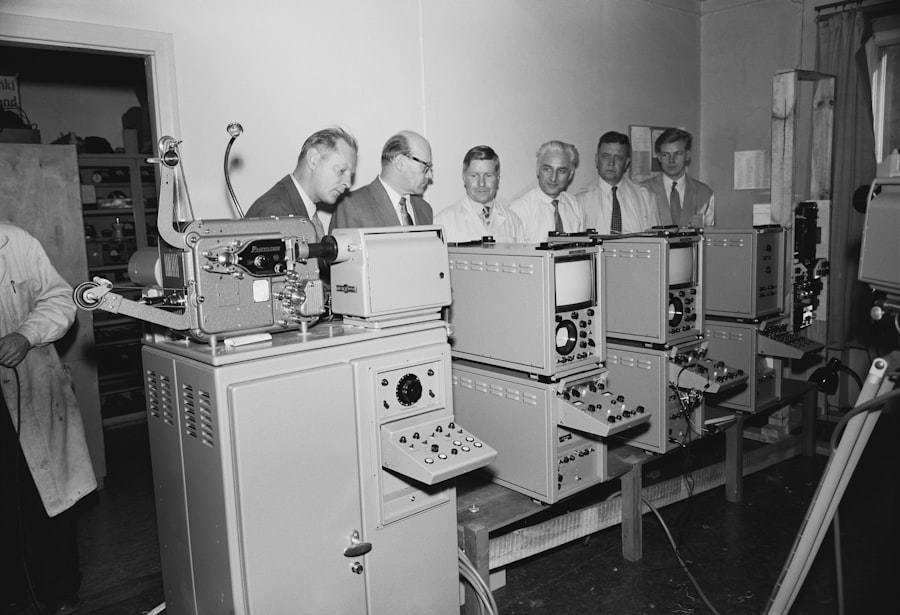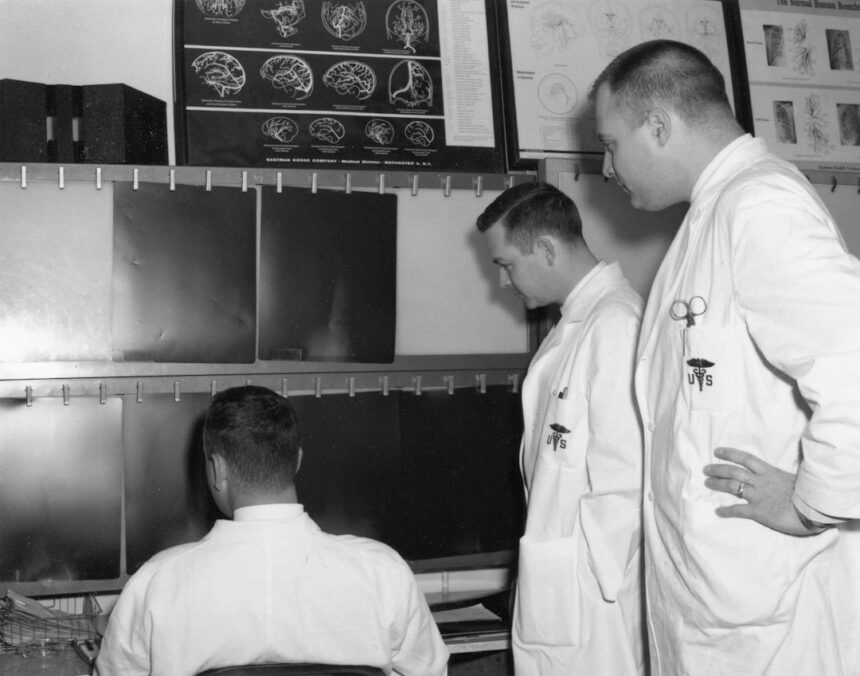In the aftermath of World War II, a significant shift occurred in the landscape of scientific research and technological advancement in the United States. As the war drew to a close, many German scientists, particularly those involved in rocket technology, found themselves in a precarious position. With the fall of the Nazi regime, these individuals faced the prospect of being held accountable for their roles in a regime that had perpetrated horrific atrocities.
S. government initiated a covert operation to bring these scientists to America. This marked the beginning of a complex relationship between former Nazi scientists and their new American counterparts.
Among the most notable figures to arrive in the United States was Wernher von Braun, a leading rocket engineer who had played a pivotal role in developing the V-2 rocket for Nazi Germany. His arrival, along with that of many other scientists, signified not only a transfer of knowledge but also a controversial chapter in American history. The influx of these scientists was met with both intrigue and skepticism, as their past affiliations raised questions about loyalty, ethics, and the moral implications of employing individuals who had once contributed to a regime responsible for immense suffering.
The arrival of these scientists set the stage for a transformative period in American aerospace history, one that would ultimately lead to significant advancements in space exploration.
Key Takeaways
- The arrival of Nazi rocket scientists in America marked a significant turning point in the country’s technological advancements.
- Operation Paperclip was a secret program aimed at bringing Nazi scientists to the United States to work on various projects.
- Wernher von Braun played a crucial role in the American space program, contributing to the development of rockets and missiles.
- The employment of Nazi rocket scientists sparked controversies and raised ethical and moral dilemmas within the American society.
- The legacy of Nazi rocket scientists in American history continues to influence space exploration and technological advancements, sparking debates over honoring and remembering their contributions.
Operation Paperclip: The Secret Program to Bring Nazi Scientists to the United States
Operation Paperclip was a clandestine program initiated by the United States government with the primary goal of recruiting German scientists, engineers, and technicians after World War
The program was shrouded in secrecy and aimed to prevent these individuals from falling into the hands of the Soviet Union, which was also eager to harness their expertise for its own military and space ambitions. The U.S. government recognized that the knowledge possessed by these scientists could be instrumental in advancing American technology, particularly in rocketry and aeronautics.

Under Operation Paperclip, many scientists were granted visas and brought to America under false pretenses, often with their Nazi affiliations downplayed or omitted entirely. This allowed them to integrate into American society and contribute to various military and scientific projects without facing scrutiny for their past actions. The program was not without its controversies; it raised ethical questions about the lengths to which the U.S.
government would go to secure technological superiority during the Cold War. Despite these concerns, Operation Paperclip successfully facilitated the migration of numerous talented individuals who would go on to play crucial roles in shaping America’s space program.
The Role of Wernher von Braun in the American Space Program
| Aspect | Details |
|---|---|
| Early Career | Worked on rocket development in Nazi Germany during World War II |
| Operation Paperclip | Brought to the United States to work on rocket technology after the war |
| NASA | Played a key role in the development of the Saturn V rocket for the Apollo program |
| Legacy | Controversial figure due to his Nazi past, but considered a pioneer in space exploration |
Wernher von Braun emerged as one of the most influential figures in the American space program following his relocation to the United States. His expertise in rocketry was unparalleled, and he quickly became a key player in NASA’s efforts to develop advanced missile systems and space exploration technologies. Von Braun’s vision extended beyond military applications; he was passionate about space travel and believed in the potential for human exploration beyond Earth.
His work laid the groundwork for significant milestones in American space history, including the development of the Saturn V rocket, which ultimately propelled astronauts to the Moon during the Apollo missions. Von Braun’s contributions were not limited to technical advancements; he also played a vital role in public outreach and education regarding space exploration. He became a charismatic figure who captured the imagination of the American public, advocating for space travel as a means of expanding human knowledge and capabilities.
His ability to communicate complex scientific concepts in an accessible manner helped garner support for NASA’s initiatives and inspired a generation of scientists and engineers. However, his past affiliations with the Nazi regime continued to cast a shadow over his legacy, leading to ongoing debates about his moral standing and the implications of his work.
Controversies Surrounding the Employment of Nazi Rocket Scientists
The employment of former Nazi rocket scientists in America was fraught with controversy from its inception. Critics argued that by hiring individuals who had been complicit in a regime responsible for genocide and war crimes, the U.S. government was compromising its moral integrity.
Many questioned whether it was justifiable to overlook their pasts for the sake of technological advancement. This ethical dilemma was particularly pronounced given that some scientists had directly participated in projects that exploited forced labor from concentration camps. Moreover, there were concerns about national security and loyalty.
The integration of these scientists into sensitive military and aerospace programs raised fears that their past affiliations could pose risks to American interests. Some members of Congress and various advocacy groups called for investigations into their backgrounds, demanding transparency regarding their roles during the war. Despite these controversies, many within the government argued that the benefits of their expertise outweighed potential risks, leading to a complex interplay between ethics and pragmatism in decision-making processes.
Ethical and Moral Dilemmas of Working with Former Nazi Scientists

The ethical implications of employing former Nazi scientists extended beyond individual cases; they raised broader questions about accountability, justice, and national priorities.
This moral quandary forced society to confront uncomfortable truths about forgiveness, redemption, and the complexities of human behavior.
Furthermore, this situation highlighted a significant tension between scientific progress and ethical considerations. The Cold War context intensified this dilemma, as both superpowers raced to achieve technological superiority. In this environment, some argued that moral compromises were necessary for national security and advancement.
However, this perspective sparked debates about whether ends could ever truly justify means when those means involved collaboration with individuals whose actions had caused immense suffering. The legacy of these ethical dilemmas continues to resonate today as societies grapple with similar issues surrounding collaboration with controversial figures.
The Impact of Nazi Rocket Scientists on American Technological Advancements
The contributions of Nazi rocket scientists had a profound impact on American technological advancements, particularly in rocketry and aerospace engineering. Their expertise facilitated rapid progress in missile technology during the early years of the Cold War, enabling the United States to develop sophisticated systems capable of delivering nuclear payloads. This technological leap not only bolstered national defense but also laid the groundwork for future space exploration endeavors.
One of the most significant achievements resulting from this influx of talent was the successful launch of satellites and crewed missions into space. The knowledge gained from former Nazi scientists played a crucial role in developing rockets capable of reaching orbit and beyond. The Saturn V rocket, which propelled astronauts to the Moon during the Apollo missions, was a direct product of this collaboration.
The advancements made during this period not only showcased American ingenuity but also solidified its position as a leader in space exploration on the global stage.
Public Perception and Outcry Against the Employment of Nazi Scientists
Public perception regarding the employment of former Nazi scientists was mixed and often polarized. While some segments of society recognized their expertise as essential for national security and technological advancement, others expressed outrage at what they perceived as a betrayal of moral principles. Advocacy groups and individuals who had been directly affected by Nazi atrocities voiced strong opposition to Operation Paperclip, arguing that it undermined justice for victims and survivors.
Media coverage played a significant role in shaping public opinion on this issue. Investigative reports revealed details about individual scientists’ pasts, prompting public outcry against their employment in sensitive positions within government agencies. This scrutiny led to calls for accountability and transparency regarding how these individuals were integrated into American society.
As debates raged on, it became clear that public sentiment was deeply divided, reflecting broader societal tensions surrounding issues of morality, justice, and national security.
The Legacy of Nazi Rocket Scientists in American History
The legacy of Nazi rocket scientists in American history is complex and multifaceted. On one hand, their contributions significantly advanced American technology and positioned the nation as a leader in space exploration during the Cold War era. The achievements made possible by their expertise are celebrated milestones in human history, showcasing humanity’s capacity for innovation and exploration.
On the other hand, this legacy is marred by ethical considerations surrounding their past affiliations with a regime responsible for heinous crimes against humanity. The decision to employ these individuals raises ongoing questions about accountability and moral responsibility within scientific communities and government institutions. As historians continue to examine this chapter in American history, it becomes evident that understanding this legacy requires grappling with both its achievements and its moral complexities.
The Continued Influence of Nazi Rocket Scientists on American Space Exploration
The influence of former Nazi rocket scientists on American space exploration extends far beyond their initial contributions during the Cold War era. Their foundational work laid the groundwork for subsequent advancements in aerospace technology that continue to shape modern space exploration efforts today. Innovations developed during this period have informed contemporary missions aimed at exploring Mars, returning humans to the Moon, and even venturing beyond our solar system.
Moreover, their legacy is evident in ongoing collaborations between government agencies like NASA and private aerospace companies pushing boundaries in space travel. The principles established by these early pioneers continue to guide research and development efforts aimed at achieving ambitious goals such as interplanetary colonization or commercial space travel. As humanity stands on the brink of new frontiers in space exploration, it is essential to acknowledge both the contributions made by these scientists and the ethical considerations surrounding their pasts.
The Debate Over Honoring and Remembering Nazi Rocket Scientists in America
The debate over how to honor or remember former Nazi rocket scientists remains contentious within American society. Some argue that their contributions should be celebrated as pivotal moments in scientific achievement while others contend that doing so risks glorifying individuals whose actions were complicit in atrocities committed during World War
Monuments or memorials dedicated to figures like Wernher von Braun have sparked heated discussions about whether such honors are appropriate given their past affiliations. Advocates for remembrance argue that acknowledging their contributions does not absolve them of responsibility but rather serves as an opportunity for reflection on complex historical narratives. Conversely, opponents assert that honoring these figures risks overshadowing victims’ experiences and perpetuating narratives that downplay accountability for past actions.
Lessons Learned from the Controversial Legacy of Nazi Rocket Scientists in America
The controversial legacy of Nazi rocket scientists offers valuable lessons for contemporary society regarding ethics, accountability, and collaboration across ideological divides. It underscores the importance of critically examining historical narratives while recognizing that progress often comes with moral complexities. As societies navigate similar dilemmas today—whether related to technology development or international collaborations—reflecting on this chapter can inform decision-making processes grounded in ethical considerations.
Moreover, this legacy serves as a reminder that scientific advancement should not come at the expense of justice or accountability for past actions. Engaging with history allows societies to confront uncomfortable truths while striving toward progress that aligns with shared values rooted in human dignity and respect for all individuals—regardless of their backgrounds or affiliations. Ultimately, understanding this legacy can help shape future approaches toward collaboration within diverse fields while fostering an environment where ethical considerations remain paramount amidst rapid technological change.
The story of Nazi rocket scientists in America is a fascinating chapter in history, highlighting the complex interplay between ethics and scientific advancement during the Cold War era. After World War II, Operation Paperclip brought many German scientists, including Wernher von Braun, to the United States to leverage their expertise in rocketry and space exploration. This controversial program is often discussed in the context of its moral implications and its impact on the U.S. space program. For a deeper dive into the intricacies of this historical period, you can explore a related article on the topic by visiting In The War Room.
WATCH THIS! 🪖How Stolen Nazis Built Cold War Power
FAQs
What were the Nazi rocket scientists doing in America?
The Nazi rocket scientists were brought to America as part of Operation Paperclip, a secret program to recruit German scientists, engineers, and technicians after World War II. They were primarily involved in developing rocket technology for the United States.
Why were the Nazi rocket scientists brought to America?
The United States brought the Nazi rocket scientists to America to gain their expertise in rocket technology, particularly in the development of ballistic missiles and space exploration. This was part of the broader effort to gain a technological advantage over the Soviet Union during the Cold War.
What impact did the Nazi rocket scientists have on America?
The Nazi rocket scientists made significant contributions to the American space program and military technology. Their work laid the foundation for the development of the Saturn V rocket, which was used in the Apollo moon missions, as well as other advancements in missile technology.
Were the Nazi rocket scientists involved in war crimes?
Some of the Nazi rocket scientists brought to America as part of Operation Paperclip had been involved in war crimes during World War II. However, their involvement in war crimes was overlooked in exchange for their expertise in rocket technology.
Did the Nazi rocket scientists face any consequences for their actions during World War II?
While some of the Nazi rocket scientists faced scrutiny and criticism for their involvement in war crimes, the United States government largely shielded them from prosecution and provided them with opportunities to continue their work in America.




